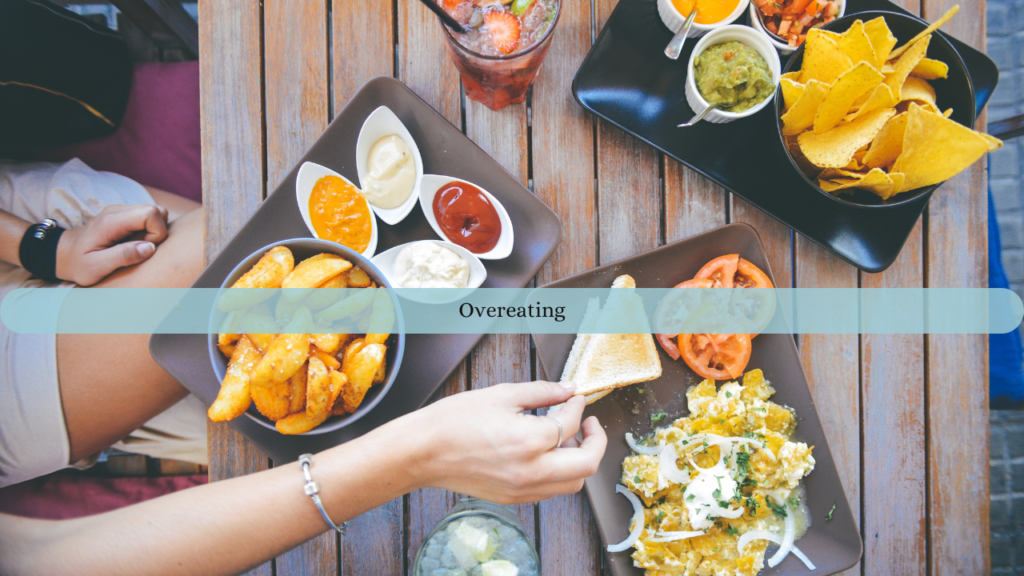
Emotional overeating is a common struggle for many people, often rooted in using food as a means of coping with stress, sadness, boredom, or other intense emotions. It can lead to weight gain, health issues, and feelings of guilt and shame, which often perpetuate the cycle. Breaking free from this behavior requires not just willpower, but also understanding the triggers, adopting mindful eating practices, and developing alternative coping strategies.
Understanding Emotional Overeating
Emotional eating occurs when people turn to food for comfort or as a distraction from their feelings. Unlike physical hunger, which builds gradually and can be satisfied with any food, emotional hunger strikes suddenly, craves specific comfort foods (often sugary, salty, or fatty), and isn’t satisfied by eating. Instead of feeling full, emotional eaters often end up feeling guilty or worse after overeating, which can lead to a cycle of emotional distress and further eating.
The first step in breaking this cycle is recognizing the difference between physical and emotional hunger. Ask yourself: “Am I really hungry, or am I eating to fill an emotional void?” This awareness can be transformative, as it interrupts automatic patterns of reaching for food whenever emotions run high.
Identifying Triggers
A crucial part of overcoming emotional overeating is identifying what triggers the behavior. Triggers can be stress from work, relationship issues, loneliness, or even boredom. Some people may find themselves eating when they are anxious or overwhelmed, while others turn to food when they are feeling down or disconnected. Keeping a food and mood diary can help you track what you’re feeling when you eat and identify patterns.
Once you understand your triggers, it becomes easier to plan alternative responses. For instance, if stress is a trigger, instead of heading to the kitchen, you might take a few deep breaths, go for a walk, or engage in another stress-relieving activity like journaling or meditation.
Adopting Mindful Eating Practices
Mindful eating is a powerful tool for overcoming emotional overeating. It involves paying close attention to your food and eating experience, focusing on the taste, texture, and aroma of your meals, and recognizing when you’re full. This practice helps you slow down and become more aware of why you’re eating, allowing you to stop before overeating.
One way to practice mindful eating is by setting aside distractions. Eating while watching TV or scrolling on your phone can cause you to eat mindlessly, consuming more than your body actually needs. Instead, focus entirely on the act of eating, chew your food slowly, and savor each bite. This not only helps you better enjoy your food but also gives your brain time to register that you’re full.
Finding Healthier Coping Mechanisms
Emotional overeating often occurs because food serves as a coping mechanism for dealing with difficult emotions. Finding alternative, healthier ways to cope with your feelings is crucial. Exercise is one of the most effective strategies, as it releases endorphins, the body’s natural mood boosters. Even a short walk or stretching routine can help improve your mood and reduce the urge to overeat.
Other effective coping mechanisms include deep breathing exercises, talking to a friend or therapist, engaging in hobbies, or practicing relaxation techniques like yoga or meditation. These activities can help calm your mind and provide the emotional comfort you might otherwise seek from food.
Building a Support System
Overcoming emotional overeating is easier with support. Talking to friends, family, or a support group can help keep you accountable. Sometimes, simply expressing your emotions or sharing your struggles with others can provide the relief you need without turning to food.
In some cases, working with a therapist or nutritionist specializing in emotional eating can provide the guidance and tools necessary for long-term change. Cognitive behavioral therapy (CBT) is particularly effective in helping individuals change their eating patterns by addressing the thoughts and feelings driving the behavior.
Conclusion
Breaking the cycle of emotional overeating takes time, patience, and self-compassion. By understanding your triggers, adopting mindful eating habits, finding healthier coping mechanisms, and building a strong support system, you can successfully overcome emotional overeating and develop a healthier relationship with food. Each small step brings you closer to long-lasting change and a more balanced, fulfilling life.